UNSW researchers finalists in 2019 ‘Oscars’ of Australian science
Leading UNSW Sydney medical researchers are finalists at the 2019 Australian Museum Eureka Prizes, Australia's most high-profile science awards.
Leading UNSW Sydney medical researchers are finalists at the 2019 Australian Museum Eureka Prizes, Australia's most high-profile science awards.
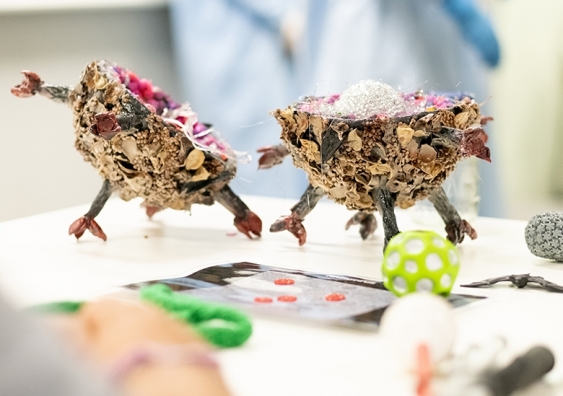
Lucy Carroll
UNSW External Communications
9385 8732, 0402 005 319
l.carroll@unsw.edu.au
Programs to eliminate tuberculosis globally, bringing medical discovery to blind and low vision communities and uncovering science for new and vulnerable audiences are among the UNSW Sydney projects nominated for the 2019 Australian Museum Eureka Prizes, Australia's most high profile science awards.
Four UNSW Sydney and UNSW-affiliated researchers have been named finalists for their outstanding achievements in the fields of leadership, research and innovation.
Presented annually by the Australian Museum, the awards represent the best in science research. For the first time, two new Eureka Prizes are being presented, the Eureka Prize for STEM inclusion, presented by the Department of Industry, Innovation and Science and the Eureka Prize for Long-Form Science Journalism, presented by the Finkel Foundation.
The finalists are in the running for 17 Australian Museum Eureka Prizes to be awarded across four categories including research and innovation, leadership, science engagement and school science.
The UNSW finalists are:
Associate Professor Saunders reaches outside the usual channels of science communication to make evidence-based science accessible to the general public. By engaging with public debate through mainstream and online media, social media and other platforms, Associate Professor Saunders moves beyond his speciality of cancer biology to tackle some of the most complex science issues including climate change, vaccination and gene editing.
Through evidence and analysis, Associate Professor Saunders takes science to where disengaged or vulnerable audiences are already seeking health advice - mainstream media, lifestyle blogs and Instagram.
“In a world flooded with myths and misconceptions about health and medical topics, taking a strategic approach, engaging empathy and compassion to show the human side of science is critical,” Associate Professor Saunders said.
“To not only show the outcomes of research - but the motivation of scientists, the process of doing science, and how new findings and technology are so important to our everyday lives.”
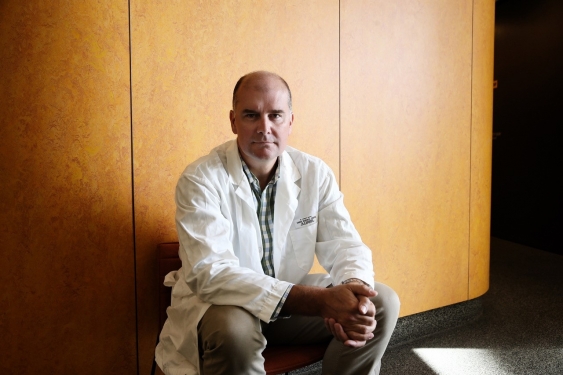
Associate Professor Darren Saunders, nominated for the Celestino Eureka Prize for Promoting Understanding of Science.
Professor MacMahon, the principal director of The George Institute for Global Health and professor of cardiovascular medicine at UNSW, is a global authority on cardiovascular disease. His research, vision and leadership has had a profound impact on the lives of millions of people worldwide, particularly those most vulnerable to heart disease and stroke.
Professor MacMahon is an international authority on the causes, prevention and treatment of heart disease and has a special interest is the management of chronic and complex conditions in disadvantaged settings, particularly in the Asia-Pacific region.
“I am delighted to be recognised alongside such remarkable peers for an award that celebrates the role and impact of great leadership in science," Professor MacMahon said.
"In my work with The George Institute for Global Health, I help champion our commitment to developing evidence-based preventive and treatment approaches for the most common chronic conditions, and guide an exceptional team to achieve this."
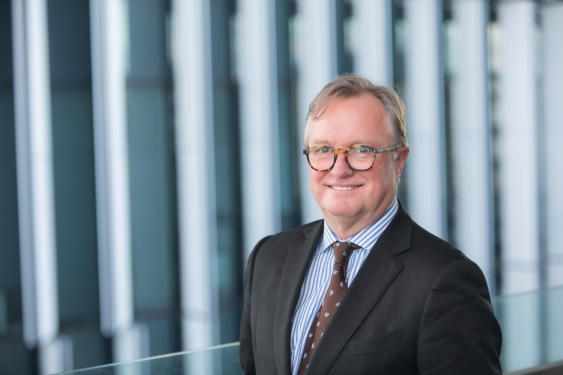
Professor Stephen MacMahon, The George Institute for Global Health, a finalist for the CSIRO Eureka Prize for Leadership in Innovation and Science.
A team from UNSW and Monash University has established a series of interactive exhibitions that are specifically designed for a low or no vision audience. The events help participants to engage with fundamental scientific concepts and to learn about the latest biomedical research happening in Australian universities.
Led by Monash Biomedicine Discovery Institute researcher, ARC Laureate Fellow Professor Jamie Rossjohn, the team have transformed scientific concepts into tactile models, 3D and kinetic models and artistic displays that are specifically tailored to the low-vision community.
Following the overwhelmingly positive feedback from the first exhibition held at Monash in May 2018, UNSW’s Dr Jacques was engaged to lead the second Sensory Scientific Exhibition held at UNSW in December last year.
“As scientists, we try to make discoveries that benefit everyone,” Dr Jacques said.
“But scientific results are often difficult for the public to access or shrouded in impenetrable jargon. We see it as a duty to bring our discoveries to the community, particularly to groups that don’t always have equal access to science."
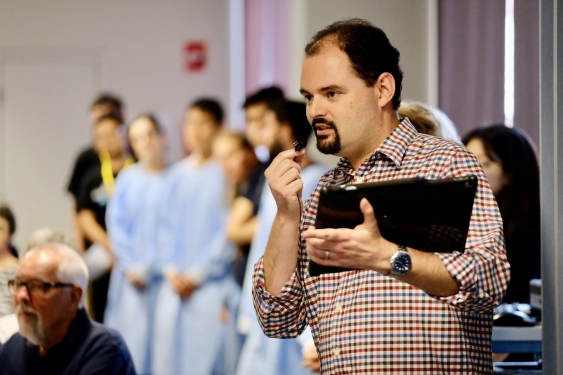
Dr David Jacques has been nominated for the Department of Industry, Innovation and Science Eureka Prize for STEM Inclusion.
Scientia Professor Marks is a respiratory physician and epidemiologist committed to finding solutions to the big problems affecting global lung health. In Vietnam, he is working with Vietnamese and international colleagues to develop scalable interventions that will contribute towards the elimination of tuberculosis as a major health problem in much of the world.
Using innovative screening techniques in clinical trials, the ACT Now for Tuberculosis Control team has made major advances that promise to transform global efforts to eliminate the disease.
"We have known the cause of tuberculosis since Koch's famous discovery in 1887. We have had most of the tools needed to diagnose TB for over 100 years and the drugs need to effectively cure the disease for over 50 years," Professor Marks said.
“With these tools, we have nearly eliminated it in many countries – including Australia. In my view, it is a scandal that, in 2019, it remains the largest infectious disease killer in the world. I am very excited that our work in Vietnam is showing a pathway towards ending this scourge."
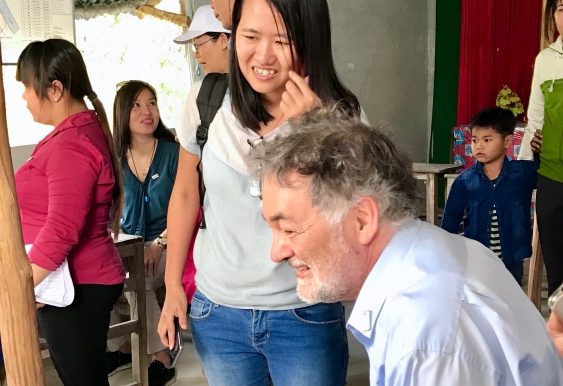
Professor Guy Marks and team members in Ca Mau Province, Vietnam leading the ACT3 study for screening for TB.
Winners will be announced at a gala award dinner at Sydney Town Hall on the evening of Wednesday 28 August 2019.
Director and CEO of the Australian Museum, Kim McKay AO, said the finalists in the 2019 Australian Museum Eureka Prizes reflect the many spheres in which science has a crucial impact – medicine, industry, environment, healthcare, education and more.
“Australian scientists are leading the world in many areas and their research is at the cutting edge of discovery and development,” Ms McKay said.
"The introduction of the STEM Inclusion Eureka Prize is an important part of our commitment to encouraging people’s interest in science, technology, engineering and mathematics and making STEM accessible to as diverse a group of people as possible.
For more information, please visit the Australian Museum website for updates.